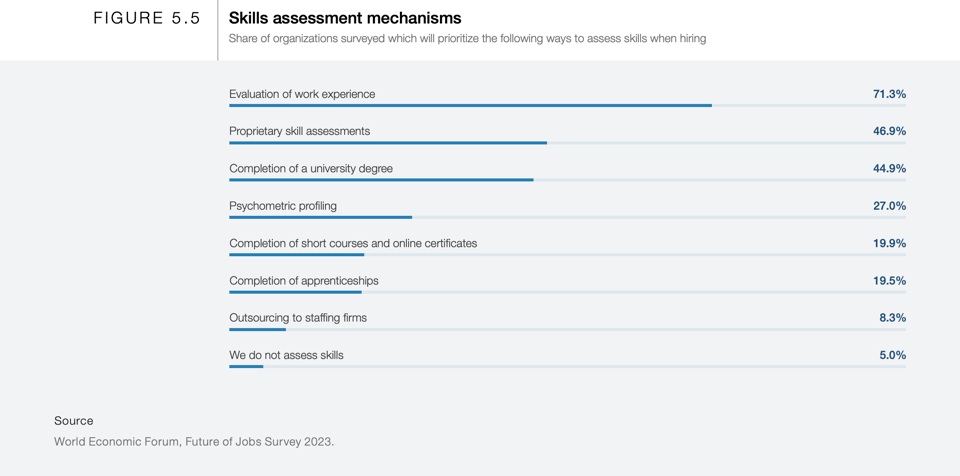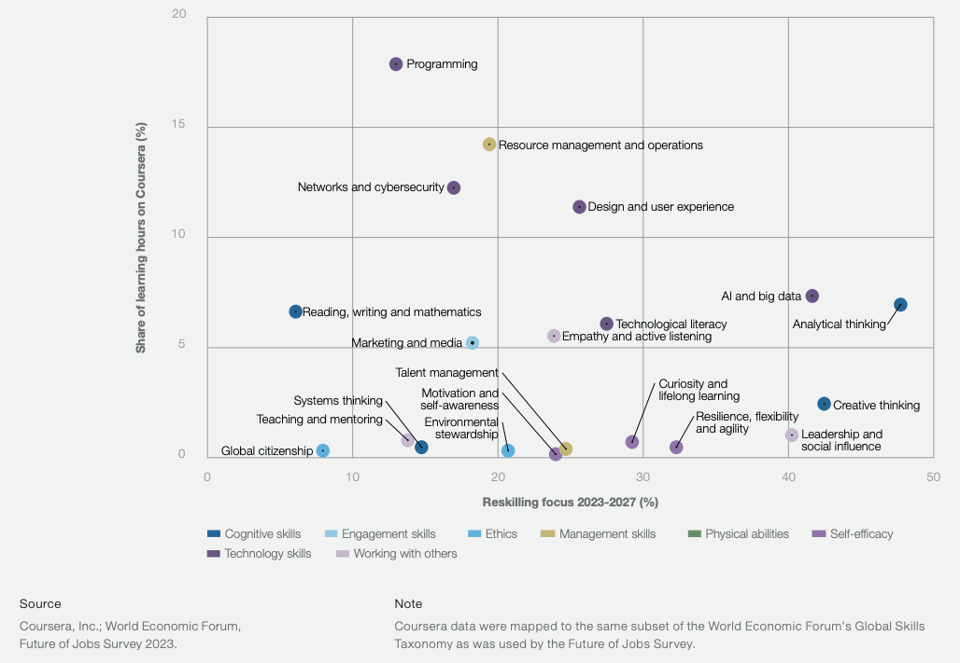#2- Animation and News are losing jobs. Where can we go for stable employment?
Maybe getting a degree in animation wasn’t a great idea.
Everyone I know in animation is failing to find a gig. A third of all video game developers have faced layoffs in the past year. Even Pixar has layoffs coming in the next year.
And it appears that I decided to switch career to journalism at the worst possible time. Here’s Washington Post tech reporter Taylor Lorenz on the recent avalanche of news media layoffs:
@taylorlorenz Is journalism collapsing?! Major layoffs across the industry are happening and national news brands are shuttering. Just today, the Los Angeles Times laid off 115 people. This follows layoffs at myriad other outlets. The rise of independent journalism on social media has been great, but it’s increasingly hard for independent journalists to sustain a business online, and their work is often shadow-banned and demoted within tech company algorithms. Anyone hoping billionaires might save the media will be disappointed. As the New York Times recently reported: Jeff Bezos, the founder of Amazon, bought The Washington Post in 2013 for about $250 million. Dr. Patrick Soon-Shiong purchased The Los Angeles Times in 2018 for $500 million. Marc Benioff purchased Time magazine for $190 million in 2018. But it increasingly appears that the billionaires are struggling just like nearly everyone else. Time, WaPo and The LA Times all lost millions of dollars last year and the difficulties facing the companies are getting only more severe. Web traffic has waned for many publishers as referrals from search engines like Google ebb, and the rise of new applications powered by artificial intelligence has the potential to erode readership further. “These vitally important news publications still find themselves ‘transitioning’ from print to digital — with major ongoing legacy business costs — as they build brick by brick a mainly digital future,” said Ken Doctor, an analyst and media entrepreneur. Mr. Doctor said the billionaires in the news industry were showing “greater signs of fatigue,” stemming from challenges including “news anxiety and avoidance and fierce advertising competition.” “The very rich find it very difficult to lose money year over year,” Mr. Doctor said, “even if they can afford it.” 👉🏻 Follow me @taylorlorenz for more tech and online culture breakdowns 👈🏻 #news #journalism #media #latimes #nyt #washingtonpost #jobs #journojobs #gaming #popculture #music #sports #contentcreator #creator #influencer #journalist #apps #internet #onlineculture #internetculture #socialmedia #technology #elonmusk #commentary #justchatting ♬ Summertime Sadness (Wren Remix) - Wren
It’s not looking good.
So let’s say you, like me, have a degree in a dying field. And you want to look for greener pastures. What field could you find your future in?
I did some digging this week, and found the 2023 Future of Jobs Report by the World Economic Forum (hereon referred to as the WEF). The paper is long and dense and I read it so you don't have to. I think it can help us figure out what the new diaspora of media employees can do if they want to transition careers.
A brief disclaimer: The report breaks down a worldwide survey of 803 companies that employ 11.3 million workers. I have tried to separate out the information that is most relevant to workers in the United States, but there may be some cross-contamination.
Step 1: Pick a Future-Proof Career
Nobody wants to adopt a new career only for that job to be eradicated by AI or mechanization. The scary thing is that 75% of companies surveyed expect to adopt AI in some form over the next five years. And this will decimate some fields. It’s estimated that 26 million jobs in administrative work will be lost worldwide- jobs like data entry, accounting, bookkeeping, and payroll clerks. And there will be job losses in other sectors too. If your job is white collar and doesn’t require a ton of thinking, you’re at risk of automation. And as AI gets smarter, more of the keyboard class should get scared.
So what jobs are future proof?
- The trades are always a safe option, with the WEF writing that in 2022, “Nursing professionals, plumbers and pipefitters […] welders and flame cutters, bricklayers and related workers, and heavy truck and lorry drivers were among the most needed professions.” If you recall last week’s newsletter, healthcare jobs are especially on the rise in the United States. If you want to work in a country with an aging population, there is going to be demand for nurses and hospice workers. But let’s say you don’t want to get your hands dirty. What white collar jobs are safe from automation?
- You could get a job in cybersecurity- the WEF estimates that there’s currently a “global shortage of 3 million cybersecurity professionals.” In the United States, those roles make $109,805 a year on average. In an increasingly digital world, computer security is only going to become more important.
The next two future-proof sectors are obvious when you think about it: Green energy and big data/AI.
- There will be a lot of money to be made off of the transition to sustainable energy, whether that’s as a solar panel installer (they make $44,142 a year), or as a consultant that helps companies obey new environmental regulations. Until we fix climate change, there will be jobs in renewables. In just the next five years, the green energy sector is expected to grow by 1 million jobs.
- Next, if you can’t beat the bots, you may as well learn how to make ‘em. Apparently, “Demand for AI and Machine Learning Specialists is expected to grow by 40%, or 1 million jobs, as the usage of AI and machine learning drives continued industry transformation.” Are those jobs ethical? Maybe. Are they secure? Definitely. But until the machines are able to invent themselves, there will be growing demand for AI programmers.
Step 2: Retraining
Alright, so now you’ve found a field you want to go into. But they probably aren’t going to let you work on a solar panel or a security mainframe with a resume of animation or journalism projects. So how are you going to convince them to hire you?

According to the WEF, the most important thing for employers when they’re evaluating candidates is past work experience. That said, you can’t get an entry level job in the field without gaining relevant skills first, so the next step you should take is completing a university degree. If you want to become a solar panel engineer, you may have to go back to school. But to get cybersecurity work you just have to know how to do the job. And you can learn that online.
Taking online certificate courses at places like Skillshare, Coursera, or a local university extension is underrated. Right now only 19.9% of companies prioritize certificates when hiring, but according to the WEF, “The fraction of employers who consider microcredentials may indeed be expected to increase, given that 82% of companies plan to adopt education and workforce development technologies in the next five years.” Basically, since these companies are going to be asking their current workforce to undergo similar courses in order to keep up, the value of said courses for job seekers will also rise.
And what courses should they take?
Obviously, obtain basic competency first. If you want to work in AI, you're going to have to take computer programming classes first. After that, here's what you should do to stand out:
The WEF paper had a big emphasis on what topics employers are going to focus re-skilling efforts on over the next five years. This is great, because it shows us what skill deficits exist in the current workforce. When the WEF compared those desired skills to the share of hours Coursera learners spent on a given topic, it produced a supply and demand graph:

The closer a topic is to the bottom right, the more scarce it is relative to its value. Some of these are hard to learn through a certificate course (I’m not sure how far a digital class on ‘Resilience, flexibility and agility’ will get you with a recruiter), but concrete skills, like how to work with artificial intelligence and big data, can be learned online and will give you a competitive edge when applying to jobs.
So, if you are an artist or journalist looking for greener pastures, there they are, and that’s how you can there. Or you can take a chance and stick around.
There’s been lulls in the animation and games job market before. And while journalism has never had a dark age like this, I think it will rebound. In an age of computer generated lies and constant digital propaganda, there will be a market for information that people can trust. At least that’s what I’m banking on. If I change my mind, I’ll let you know. Seems like there’s good money to be made in solar.
Thanks for reading Mudlark! I'm an animation major attempting a career transition to journalism. In this newsletter I answer complex questions in a concise and candid way. I'm experimenting with tone, style, and subject as I figure out what kind of reporter I want to be. If you want to follow along with my journey, feel free to subscribe.